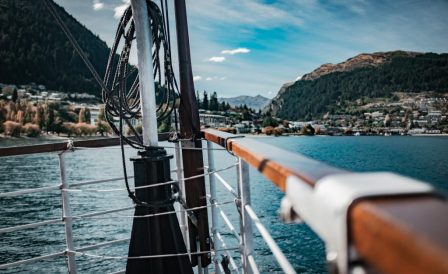Content:
- Must-do before arrival
- Transportation from Auckland’s airport
- Temporary accommodation
- Bank account
- Mobile operator
- Interesting and useful locations
- Must-do after arrival
- Public transport
- Shops and Shopping Malls
- Private transport
- Accommodation
- Buying furniture
Hi, my name is Dmitry. I came to Rotorua with my wife and daughter in early February 2019 to study at the local Toi Ohomai Institute.
Rotorua is a small city located on the North Island of New Zealand. In three months, we managed to settle into this cozy little town and gain a small but very useful experience, which I’d like to share with future migrants, along with some helpful advice.

What to Do Before Arrival
The best online resource about Rotorua that helped me prepare for the move is rotoruanz.com. On this site, you’ll find pretty much everything about the city. But I’d like to add a few facts about Rotorua from my own experience:
- As of 2019, the local population is about 72,000, but the annual tourist flow is around 3 million. This makes the city a great place to start a career in hospitality and tourism. There are plenty of jobs in this field. However, other industries, especially IT, struggle here, and finding work outside of tourism can be difficult.
- The large number of geysers and natural hot springs throughout Rotorua are noticeable not only visually but also through the smell. Hydrogen sulfide is quite strong in the air, and the smell may be unpleasant at first. However, after a couple of weeks, you get used to it and your brain starts to ignore it. Some people even begin to like it.
- The air in Rotorua has a strong effect on metal surfaces—rust and corrosion are common. You’ll notice this on the blackened nameplates of local cars and how silver objects quickly lose their shine.
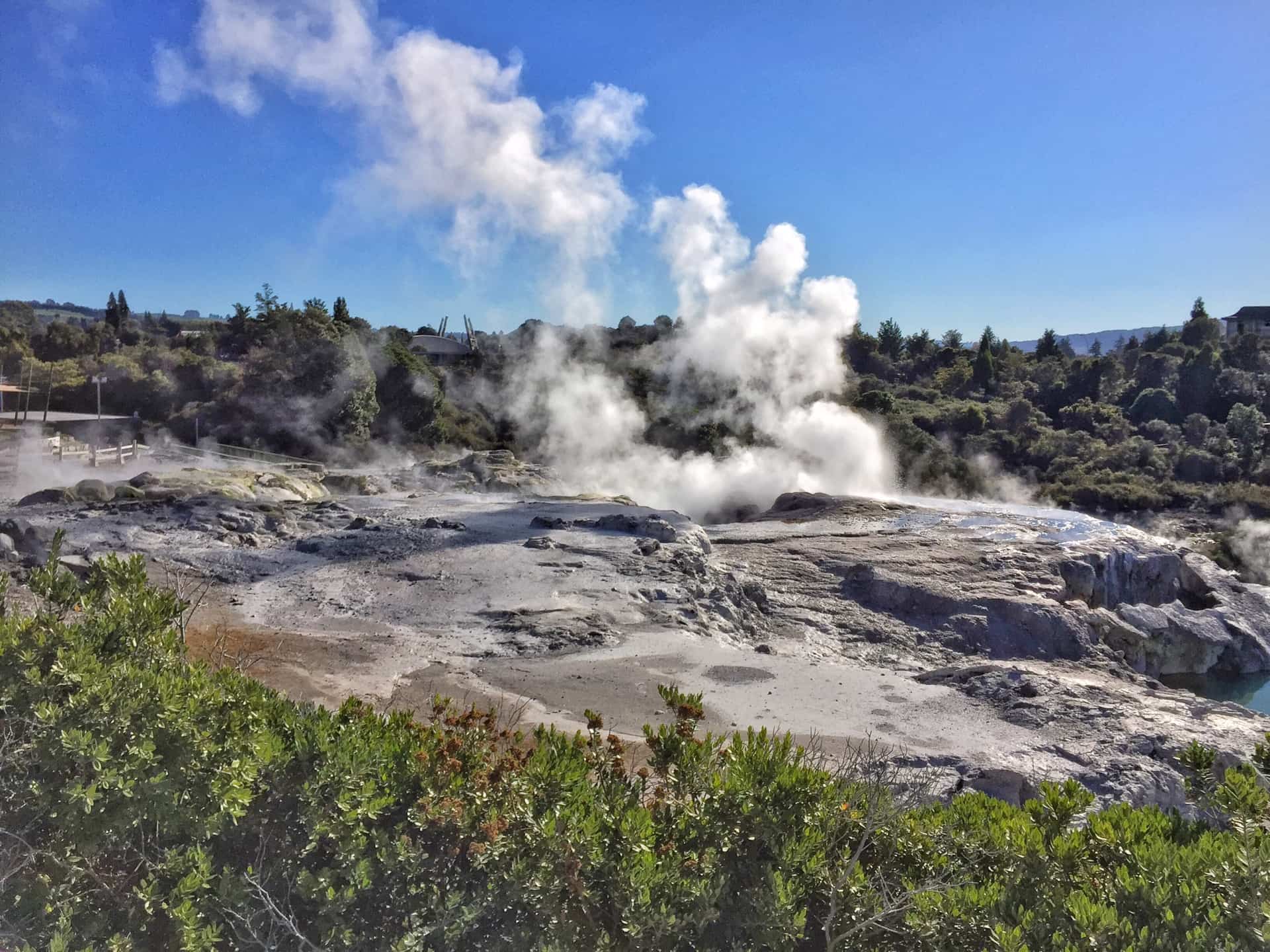
Geysers and hot springs are a normal part of life in Rotorua.
Advice
It’s helpful to do a bit of prep work beforehand to save time upon arrival:
- Book transportation for yourself and your belongings from Auckland Airport to Rotorua;
- Find temporary accommodation while searching for a long-term rental;
- Open a bank account;
- Choose a mobile provider;
- Mark interesting and useful places on a map to visit later.
Transport from Auckland Airport
If you’re a Toi Ohomai student, a free shuttle from Auckland Airport to Rotorua is provided, though family members will need to pay for their seats separately at the institute after classes begin. You can also book your own shuttle – just search for “Auckland – Rotorua shuttle” on Google.
Temporary accommodation
Among temporary housing options, hostels are the cheapest. Hotels and Airbnb are much more expensive. It’s nearly impossible to find long-term rental immediately. Expect that finding a place might take some time. Our case was unusual: we arrived on February 6, signed a rental agreement on the 8th, and moved into the house on the 11th – just five nights in a hostel.
Local hostels (called “backpackers”) are a great first option, especially if you’re arriving alone. The most well-known ones in Rotorua are YHA Rotorua and Rock Solid Backpackers. We stayed at the latter.
Important for families with kids: Hostels will only place you in a private room without other guests. Since family rooms (2+1 beds) are almost always taken, we had to pay for a 4-bed room.
The hostel had a great atmosphere—and, of course, free Wi-Fi.
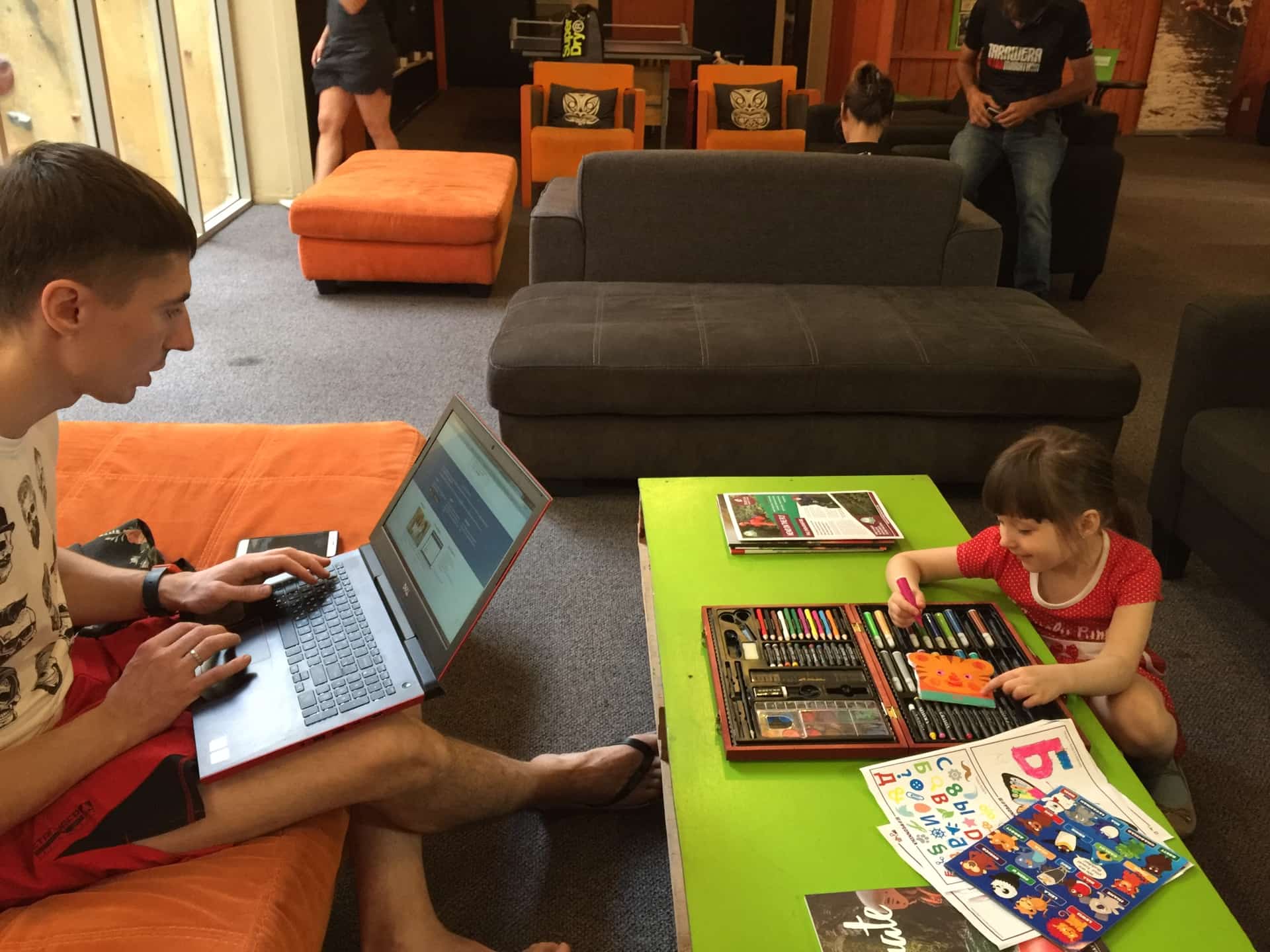
The hostel had a great atmosphereб, and of course, free Wi-Fi.
Bank Account
You’ll need a bank account to get a local IRD number and to start working. To save time, you can apply for an account in advance while still in Russia. However, to activate the account, you’ll need to confirm your identity in person at a local bank branch upon arrival.
I chose the Jumpstart account from ANZ Bank – it offers free account maintenance and a debit card for students and people under 21.
Mobile provider
This is a simple task, but still, it’s better to do your homework. Visit the websites of the major mobile providers (Vodafone, 2Degrees, Spark), compare plans, and look for promotions.
I went with 2Degrees mainly because of their Data Clock app, which gives one free hour of internet each day, plus their pricing was better than the competitors.
Interesting and Useful locations
You can mark attractions and useful places in Rotorua on Google Maps in advance, so once you arrive, you already know where the essentials are. I marked the bank, mobile provider store, hostel, real estate agencies, supermarkets, etc. Don’t forget to download the needed areas on Google Maps for offline use.
What to Do After Arrival
Once you arrive at the airport, if you brought USD cash, exchange a small amount into NZD—$100–200 NZD should be enough for the first few days. You can exchange the rest in Rotorua at better rates.
Once you check into temporary accommodation, be prepared to spend the first day feeling out of sorts. Long flights and the drastic time difference will hit hard. Give your body time to recover before diving into errands.
Public Transport
The only public transport in Rotorua is green buses. There are 12 routes; route numbers are shown on a scrolling display above the driver’s window. Schedules, fares, and info are on the official website.
Buses are usually very punctual. Note: they only operate until around 6:30 PM, which caught us off guard—we once had to walk back from the store at 7 PM.
Fares are paid to the driver in cash, and this is the most expensive option. To reduce your fare, buy a SmartRide card from the driver for $10. This goes to your card balance, and you can top it up with at least $10. Show your student ID before paying for a student discount.
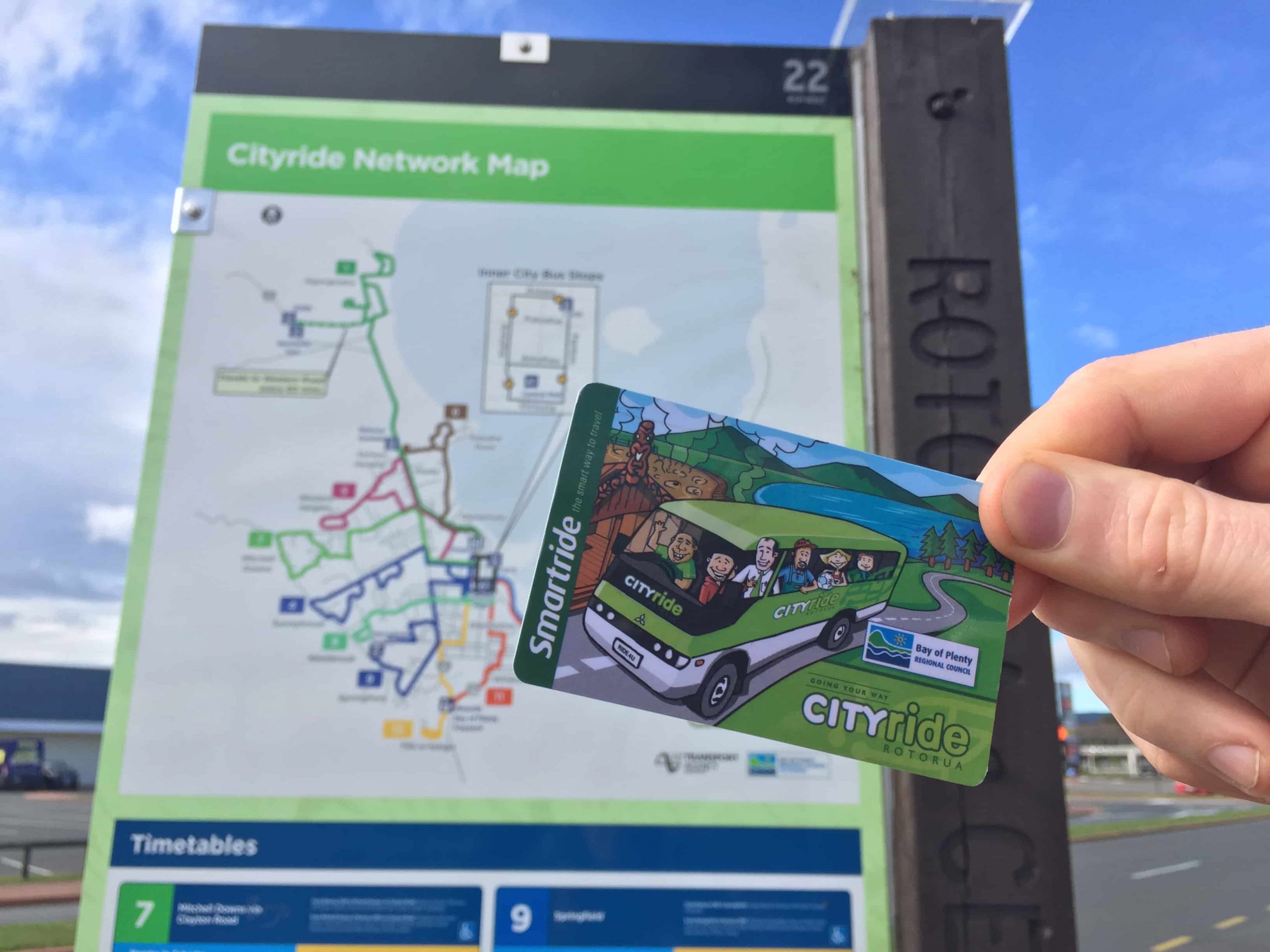
Smartride card and a seemingly confusing bus map.
Shops and Malls
You’ll find all necessary stores, mobile operator offices, and banks around Central Mall Rotorua. There, you can buy a SIM card, open a bank account or verify your ID, and shop for groceries.
The best grocery prices are at large supermarkets like Woolworth or Pak’n’Save. For other goods, go to The Warehouse (inside Central Mall) or KMart (1 km from the center).
Personal Trasport
To move around comfortably, you may want to buy a car right away. A decent car can cost $1,000–2,000 NZD.
If you’re not planning on getting a car, consider buying a bike. Rotorua is great for biking—many roads have bike lanes, and there are mountain trails and trick parks. Don’t forget to buy a helmet, as it’s mandatory here.
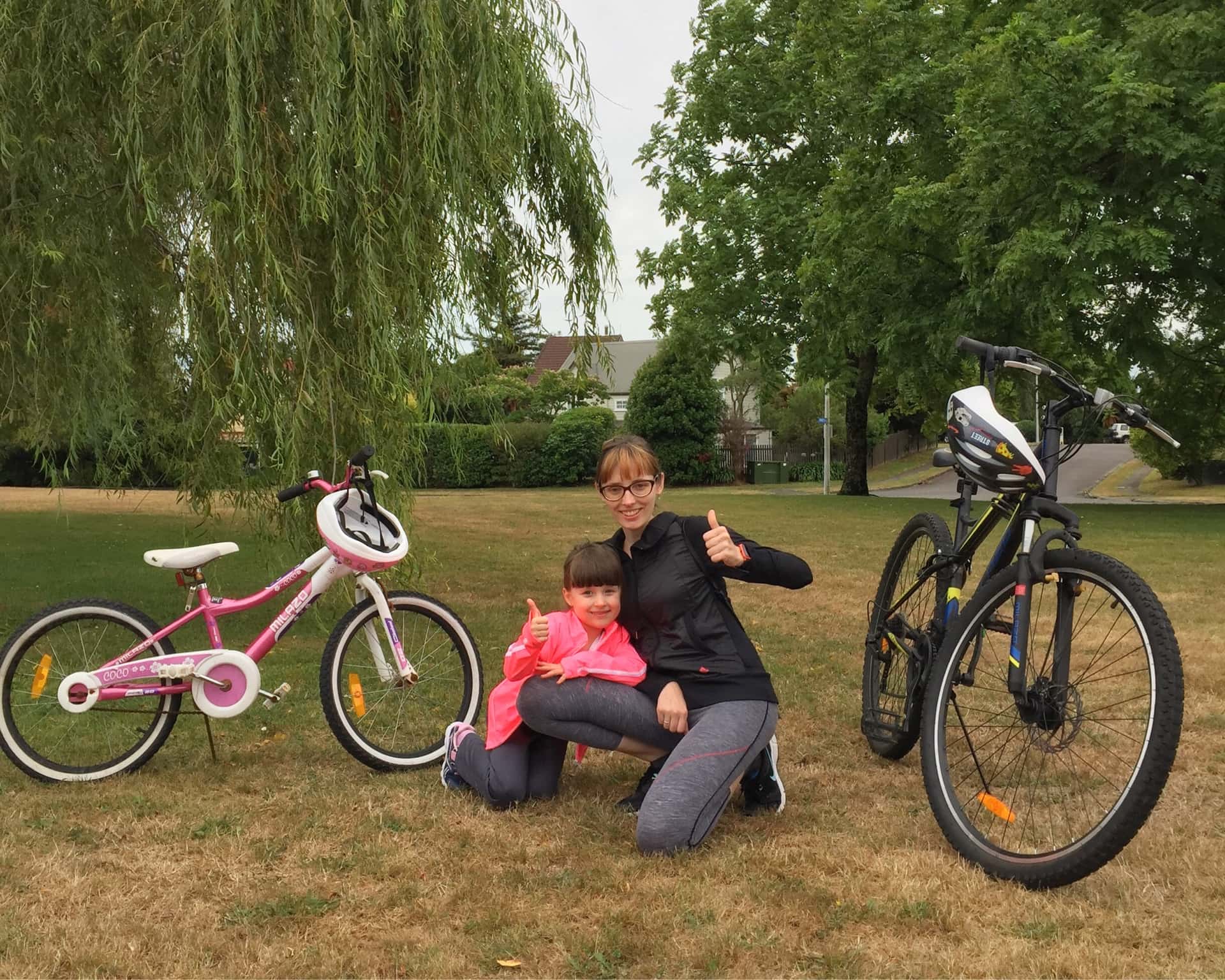
Family biking is very popular in Rotorua.
Look for cars on https://www.trademe.co.nz/motors or on Facebook groups. Search for “Rotorua cars” or “Rotorua buy sell.” Choose groups with over 1,000 members.
There’s also a local car market in Rotorua where you can view vehicles in person. Cars are parked with info, prices, and contact details. Not many, but still worth a visit.
Once you have a car, you can start traveling to nearby towns. Like we did in Tauranga, enjoying ocean views.
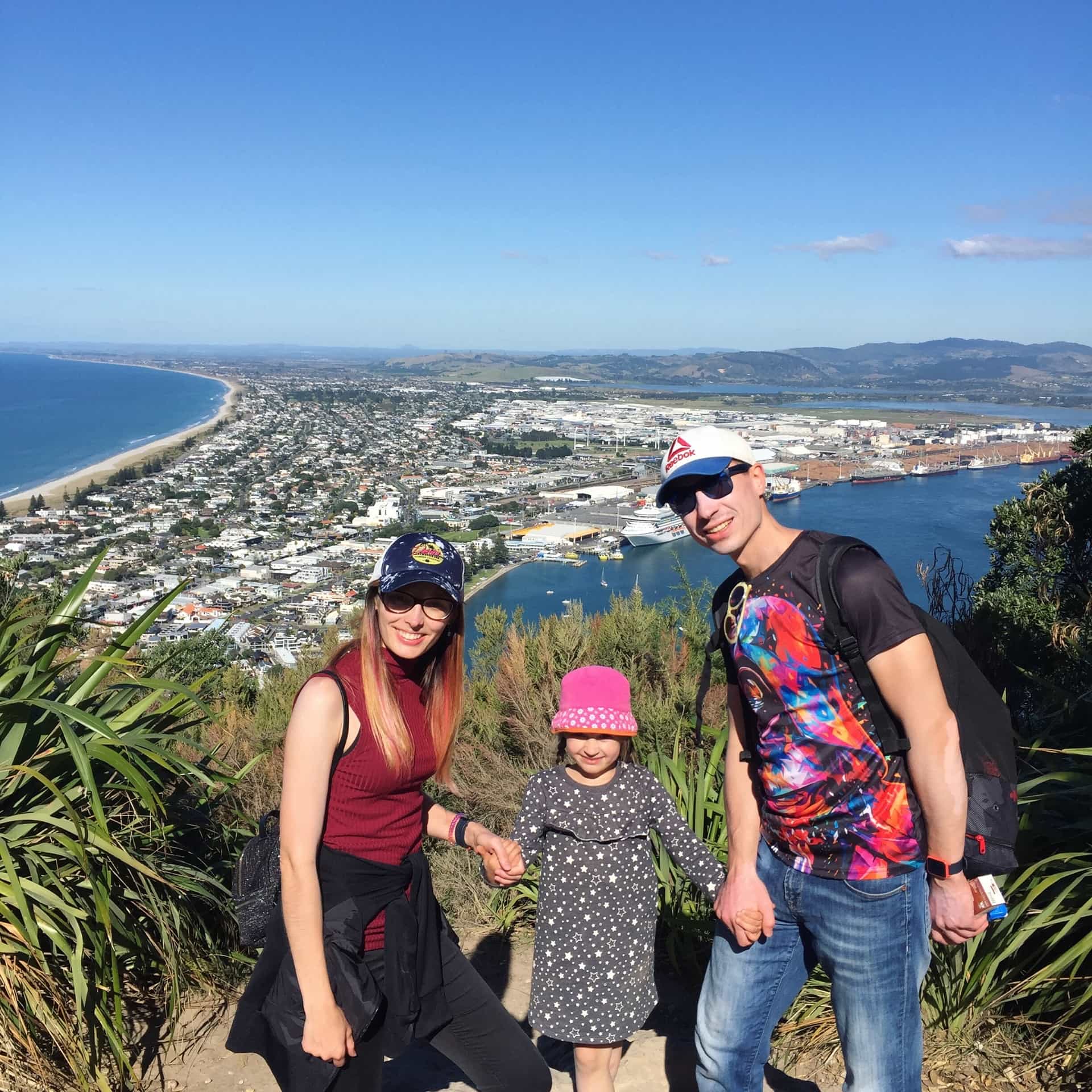
Tauranga city and ocean view.
Housing
You can start your housing search a few days before arriving in New Zealand. At least check the options, prices, and neighborhoods.
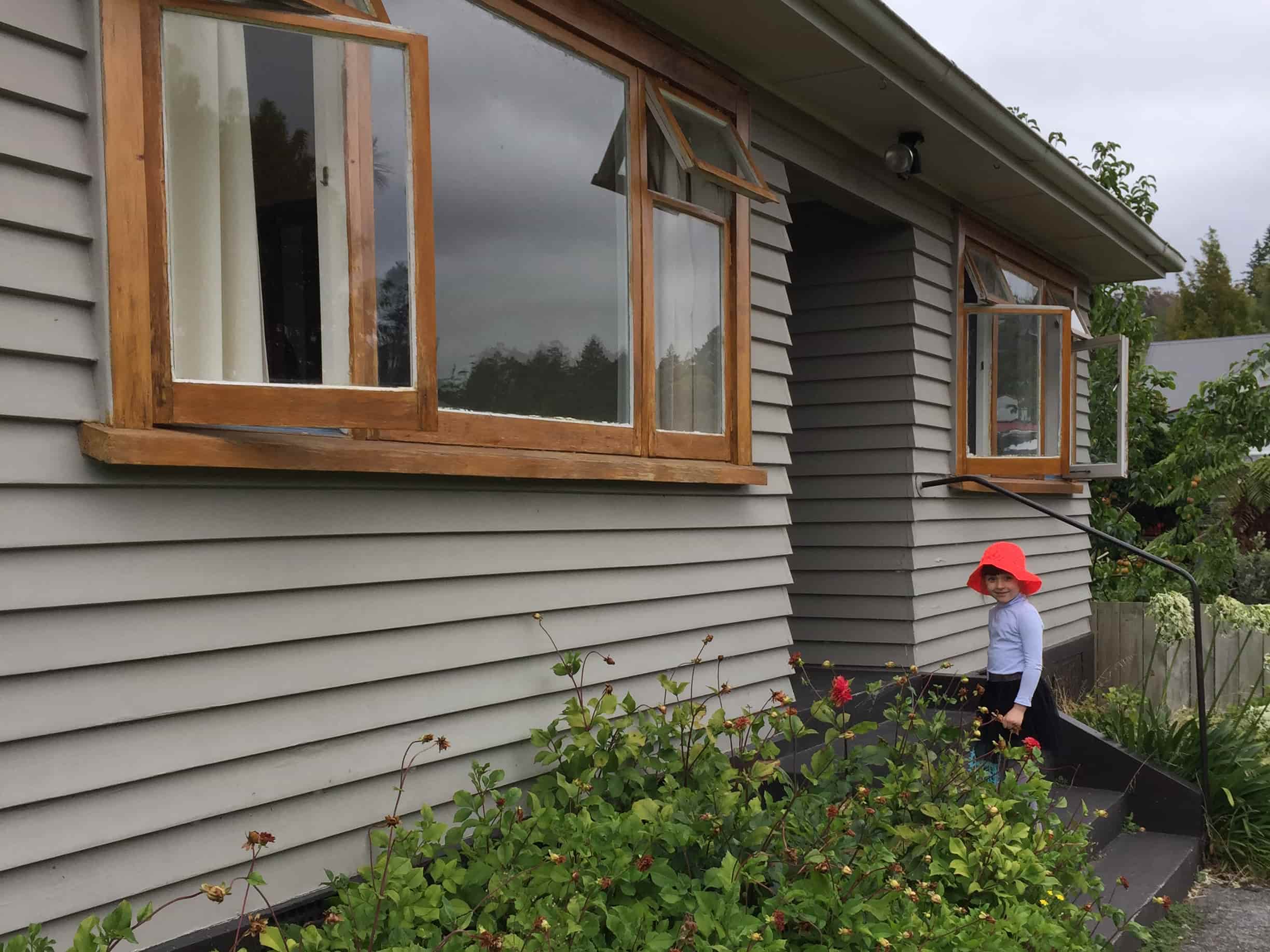
Our rental home, which we chose quickly and without hesitation.
Like everywhere else, you can rent through an agency or directly from a landlord. Either way, you’ll have to sign a rental agreement. We rented through an agency, although we viewed a house directly from a landlord too.
Tip: Start your housing search on the following websites:
- TradeMe
- OneRoof
- Facebook groups (search “Rotorua rent”)
- RealEstate
Also, visit real estate agencies on your first day—they might have immediate listings or set viewings. You’ll also be added to their database. Again, having marked places on Google Maps will help (search “house rent Rotorua”).
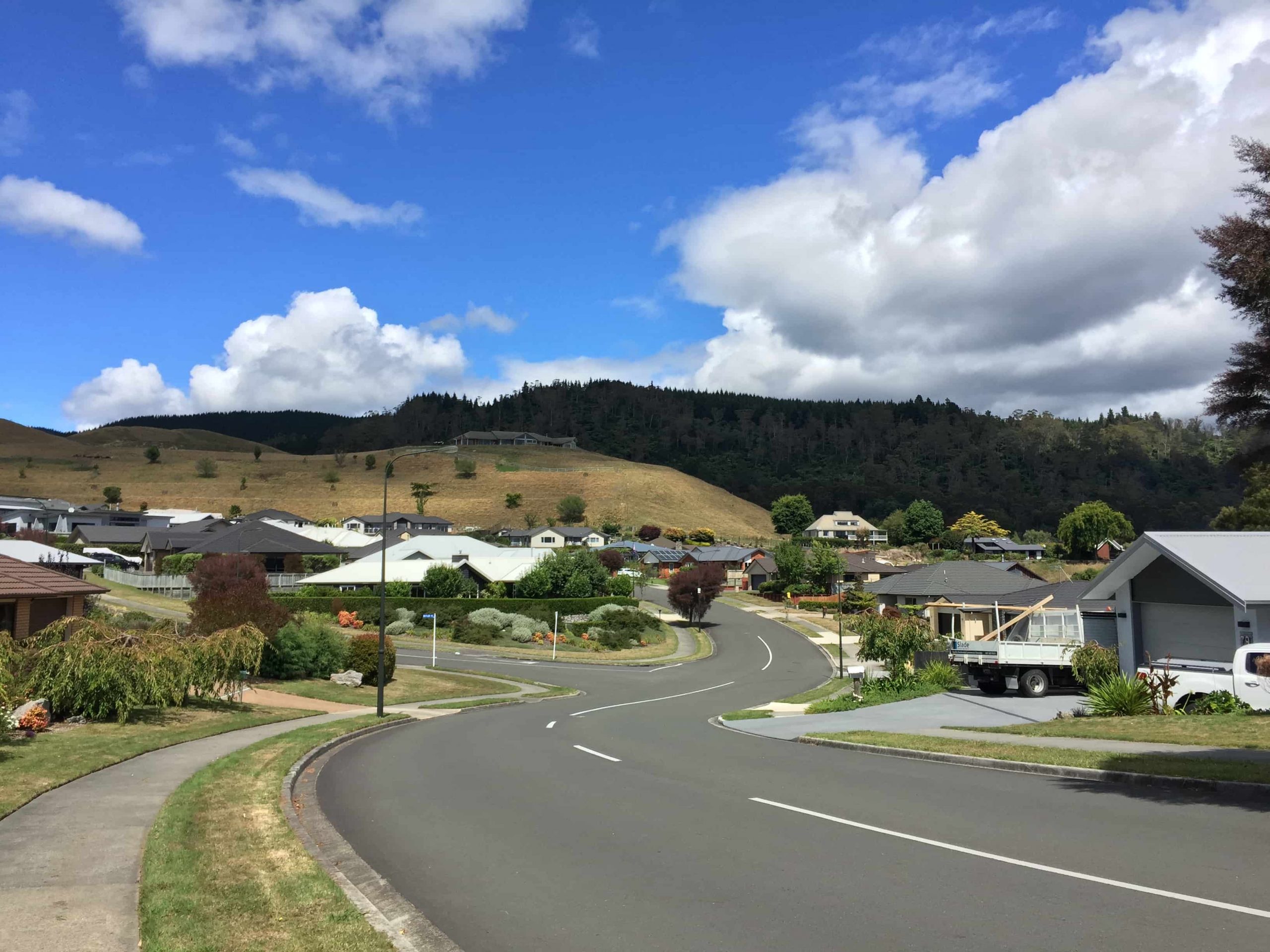
We settled in Lynmore, a local neighborhood
Rental tips
Rotorua has no central heating, and autumn/winter nights are cold. When choosing a house, pay attention to window quality and heating options (gas fireplaces, heaters, heat pumps, etc.).
Rental costs
Plan your budget wisely. Besides weekly rent, you’ll pay monthly for electricity and internet. Electricity bills range from $80–120 NZD in summer and $120–250 in winter. ADSL internet costs around $70–90/month, while faster plans are more expensive.
Apply for power and internet immediately after signing the lease. Most large providers offer online applications and mobile apps for tracking usage.
Buying Furniture
Most rentals in Rotorua are unfurnished. If you didn’t bring a container from Russia, you’ll need to buy everything locally. Look for deals in garage sales and Facebook groups. These are goldmines for cheap or free items—dishes, appliances, furniture, etc.
With free listings, act fast—items disappear within minutes. Watch for “FIFS” (First In, First Served) or “No holds” in posts. If not mentioned, you can try messaging the owner to reserve something. Some sellers offer delivery in Rotorua for ~$20.
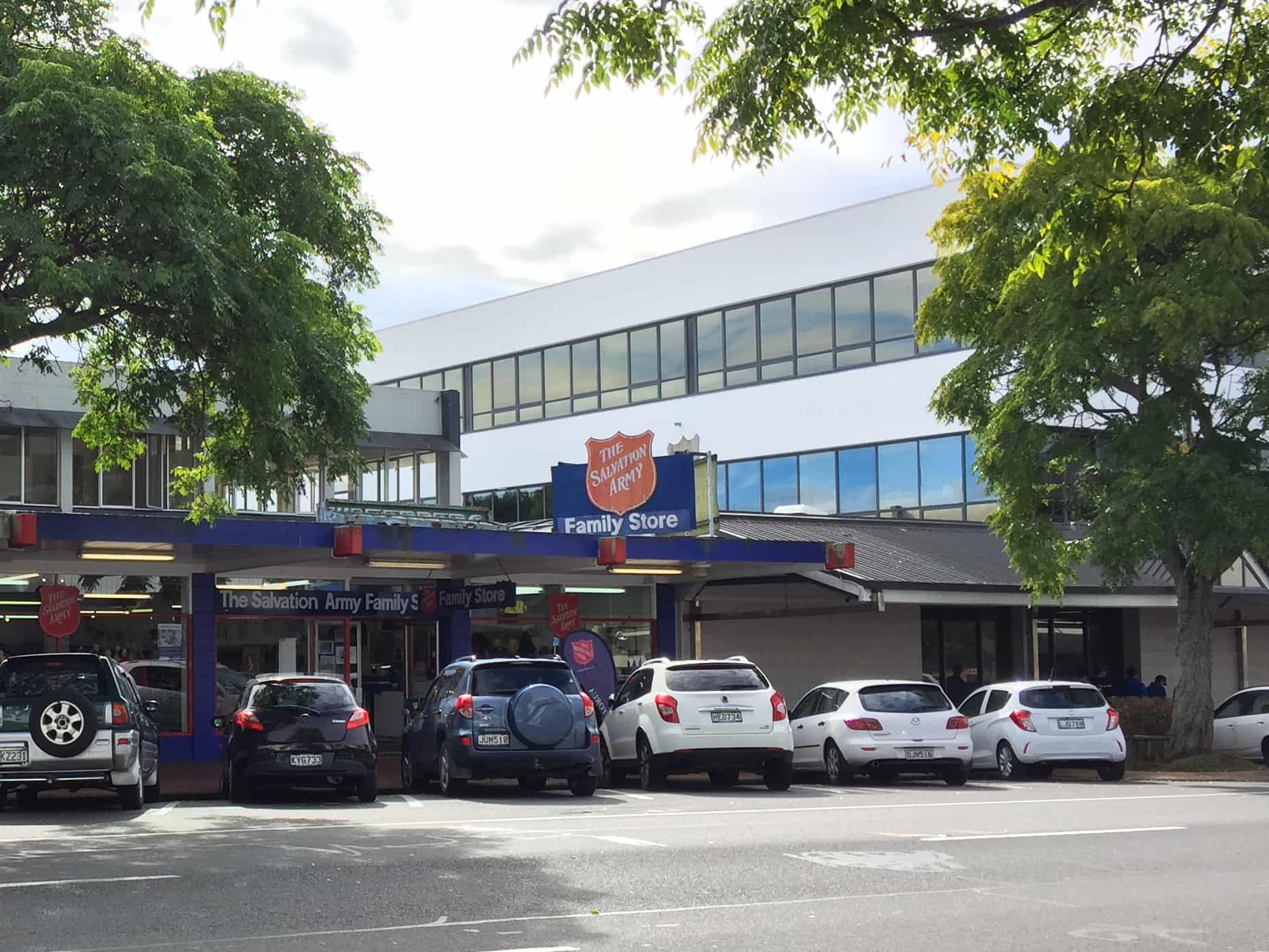
One such shop is The Salvation Army in central Rotorua.
Another good place for budget shopping is charity shops (e.g., “Hospice shop”, “Rotorua Recycling Center” on Google Maps). These sell secondhand items donated for free, and proceeds go to charity. Staff are often volunteers. You can find cheap kitchenware, furniture, decor, antiques, and more.
And the last, but nor the least. Don’t hesitate to ask for help from your language-speaking community. It might be small but very supportive.
Good luck and see you in New Zealand!



